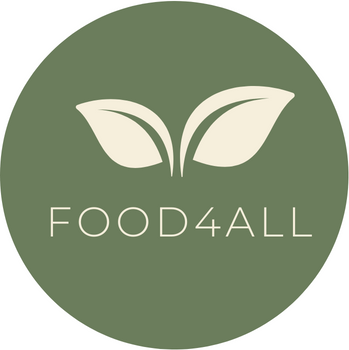Individuals and families play a crucial role in ensuring their own food security through a combination of responsible choices, sustainable practices, and awareness. Here are keyways in which individuals and families can contribute to their own food security:
- Diversified Diets: Individuals and families can promote food security by maintaining a diversified and balanced diet. Consuming a variety of foods ensures a broader range of nutrients, reducing the risk of nutritional deficiencies.
- Sustainable Food Choices: Making sustainable food choices, such as purchasing locally produced and seasonal foods, supports local farmers and reduces the environmental impact of food production and transportation.
- Home Gardening: Growing fruits, vegetables, and herbs at home, even in small spaces, contributes to food security by providing a direct source of fresh produce. Home gardening also fosters a connection to the food production process.
- Reducing Food Waste: Minimizing food waste at the household level is crucial for food security. Planning meals, proper storage, and creative use of leftovers help maximize the use of available food resources.
- Financial Planning: Effective financial planning and budgeting ensure that families allocate resources wisely, including funds for purchasing nutritious food. This helps prevent economic challenges from leading to food insecurity.
- Food Preservation: Learning and practicing methods of food preservation, such as canning, freezing, and drying, helps extend the shelf life of perishable foods and reduces the reliance on constant access to fresh produce.
- Cooking Skills: Developing cooking skills enables individuals and families to make the most of available ingredients, create nutritious meals, and minimize the need for heavily processed and convenience foods.
- Community Engagement: Engaging with local communities, farmers’ markets, and food-related initiatives fosters a sense of community and strengthens local food systems, contributing to overall food security.
- Educational Initiatives: Staying informed about nutrition, agricultural practices, and food-related issues empowers individuals to make informed decisions about their food choices, leading to healthier and more sustainable lifestyles.
- Water Conservation: Recognizing the importance of water in food production and adopting water conservation practices at home contribute to broader efforts to sustain agriculture and ensure food security.
- Supporting Local Agriculture: Choosing to purchase locally produced food supports local farmers and strengthens regional food systems. This reduces dependence on distant supply chains, making communities more resilient to disruptions.
- Emergency Preparedness: Having a plan for emergencies, such as natural disasters or economic challenges, helps families respond effectively to disruptions in food access and maintain food security during difficult times.
Individual actions, when multiplied across communities, have a significant impact on overall food security. By making informed and sustainable choices, individuals and families contribute not only to their well-being but also to the resilience and sustainability of the broader food system.
Reducing food waste and making sustainable food choices are critical actions to promote a more efficient and environmentally friendly food system. Here are practical ways individuals can contribute to these efforts:
Ways to Reduce Food Waste:
1.Meal Planning:
- Plan meals in advance to buy only what is needed.
- Use shopping lists to avoid impulse purchases.
- Consider portion sizes to reduce leftovers.
2.Smart Storage:
- Properly store perishable items to maximize freshness.
- Invest in airtight containers to extend the shelf life of leftovers.
- Use the “first in, first out” rule when organizing the fridge and pantry.
3.Understand Expiry Dates:
- Differentiate between “sell by,” “use by,” and “best before” dates.
- Trust your senses; often, food is still safe to eat beyond the date.
4.Creative Cooking:
- Find creative ways to use leftovers in new meals.
- Use vegetable scraps for broths or compost.
5.Composting:
- Establish a compost system for food scraps.
- Compostable items include fruit and vegetable peels, coffee grounds, and eggshells.
6.Donate Excess Food:
- Contribute surplus food to local food banks or shelters.
- Check with local charities about their specific needs and guidelines.
7.Preservation Techniques:
- Learn basic food preservation methods like canning, pickling, and freezing.
- Preserve seasonal produce for later use.
8.Mindful Consumption:
- Be mindful of portion sizes to avoid overeating.
- Share dishes at restaurants to reduce food waste.
Ways to Make Sustainable Food Choices:
1.Support Local Farmers:
- Purchase locally grown and seasonal produce.
- Support farmers’ markets and community-supported agriculture (CSA) programs.
2.Choose Sustainable Seafood:
- Refer to sustainable seafood guides to make environmentally responsible choices.
- Avoid species that are overfished or caught using destructive methods.
3.Reduce Meat Consumption:
- Embrace plant-based meals or participate in meatless days.
- Choose sustainably sourced and ethically raised meat when consumed.
4.Minimize Packaging Waste:
- Opt for products with minimal packaging.
- Bring reusable bags, containers, and utensils when shopping or getting takeout.
5.Educate Yourself:
- Stay informed about sustainable food labels and certifications.
- Understand the environmental impact of different food choices.
6.Water Conservation:
- Be aware of the water footprint of certain foods and choose water-efficient options.
- Consume water-intensive products, like meat and dairy, in moderation.
7.Grow Your Own:
- Consider growing herbs, vegetables, or fruits at home.
- Utilize available space, even if it’s limited, for container gardening.
8.Seasonal Eating:
- Embrace seasonal eating to reduce the environmental impact of long-distance transportation.
- Enjoy the variety that each season offers.
By incorporating these practices into daily life, individuals can contribute to a more sustainable and responsible food system, promoting both environmental health and personal well-being.
